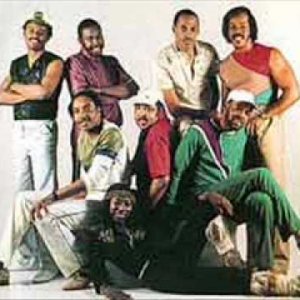- Oct 21, 2006
- 621
- 124
SARRAOUNIA

Does anyone happen to possess a copy or know where I can get a copy of the Afrikan epic film Sarraounia (1986) by Afrikan producer & director Med Hondo??
I've searched till I'm blue in the face and even tried to contact the producer but no luck so far.
This true story of Sarraounia echoes the major roles Afrikan women played throughout ourstory in leading male warriors in battle against their oppresors. In 1899 Queen & Priestess Sarraounia led her army in the Battle of Lougou against French colonislist in Afrika whilst many of the Kingdoms submitted Islamic pressure to relinquish their Afrikan Traditional Religions. The term sorceress was used to describe her magickal powers which was uses as well as military might to confront the oppressors.
She was ruler of an animist group of Eastern Hausa. Queen Sarraounia of the Aznas in Africa fought French colonists in 1899. While some kingdoms readily collaborated with the French in the hope of finally subduing her and her kingdom, and others capitulated without a fight, she mobilized her people and resources, military as well as magical, to confront the French force which launched a fierce attack on her fortress capital of Lougou. Overwhelmed by the superior firepower of the French, she and her fighters retreated tactically from the fortress, and engaged the attackers in a protracted guerrilla battle which eventually forced the French to abandon their project of subduing her. Sarraounia means queen or chiefess, and among the Azna people of Lougou and surrounding Hausa towns and villages, the term refers to a lineage of female rulers who exercised both political and religious power. The 1986 film Sarraounia is based on her life.
Source: http://en.wikipedia.org/wiki/Sarraounia
To read on Niger and Sarraounia: one hundred years of forgetting female leadership.
Publication: Research in African Literatures
Publication Date: 22-MAR-09
Author: Alou, Antoinette Tidjani
Read here: http://www.accessmylibrary.com/coms2/summary_0286-36691601_ITM
Love, Peace!

Does anyone happen to possess a copy or know where I can get a copy of the Afrikan epic film Sarraounia (1986) by Afrikan producer & director Med Hondo??
I've searched till I'm blue in the face and even tried to contact the producer but no luck so far.
This true story of Sarraounia echoes the major roles Afrikan women played throughout ourstory in leading male warriors in battle against their oppresors. In 1899 Queen & Priestess Sarraounia led her army in the Battle of Lougou against French colonislist in Afrika whilst many of the Kingdoms submitted Islamic pressure to relinquish their Afrikan Traditional Religions. The term sorceress was used to describe her magickal powers which was uses as well as military might to confront the oppressors.
She was ruler of an animist group of Eastern Hausa. Queen Sarraounia of the Aznas in Africa fought French colonists in 1899. While some kingdoms readily collaborated with the French in the hope of finally subduing her and her kingdom, and others capitulated without a fight, she mobilized her people and resources, military as well as magical, to confront the French force which launched a fierce attack on her fortress capital of Lougou. Overwhelmed by the superior firepower of the French, she and her fighters retreated tactically from the fortress, and engaged the attackers in a protracted guerrilla battle which eventually forced the French to abandon their project of subduing her. Sarraounia means queen or chiefess, and among the Azna people of Lougou and surrounding Hausa towns and villages, the term refers to a lineage of female rulers who exercised both political and religious power. The 1986 film Sarraounia is based on her life.
Source: http://en.wikipedia.org/wiki/Sarraounia
To read on Niger and Sarraounia: one hundred years of forgetting female leadership.
Publication: Research in African Literatures
Publication Date: 22-MAR-09
Author: Alou, Antoinette Tidjani
Read here: http://www.accessmylibrary.com/coms2/summary_0286-36691601_ITM
Love, Peace!





 . Bless you. I had tried Med Hondo's site prior to posting this thread. I thought I was in luck when I saw the site but the movie only plays for about a minute and then stops. I even rebooted my PC hoping it was my internet connection but still no luck...
. Bless you. I had tried Med Hondo's site prior to posting this thread. I thought I was in luck when I saw the site but the movie only plays for about a minute and then stops. I even rebooted my PC hoping it was my internet connection but still no luck...  Absolutely devastated!!
Absolutely devastated!!
 ... please make yourself at home ...
... please make yourself at home ... 